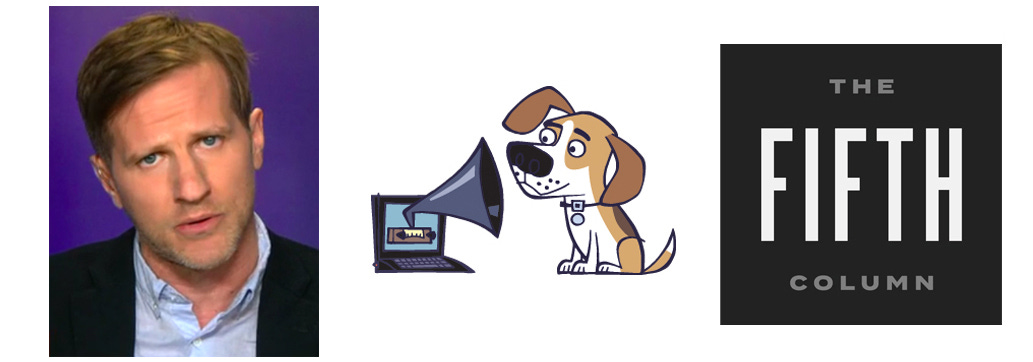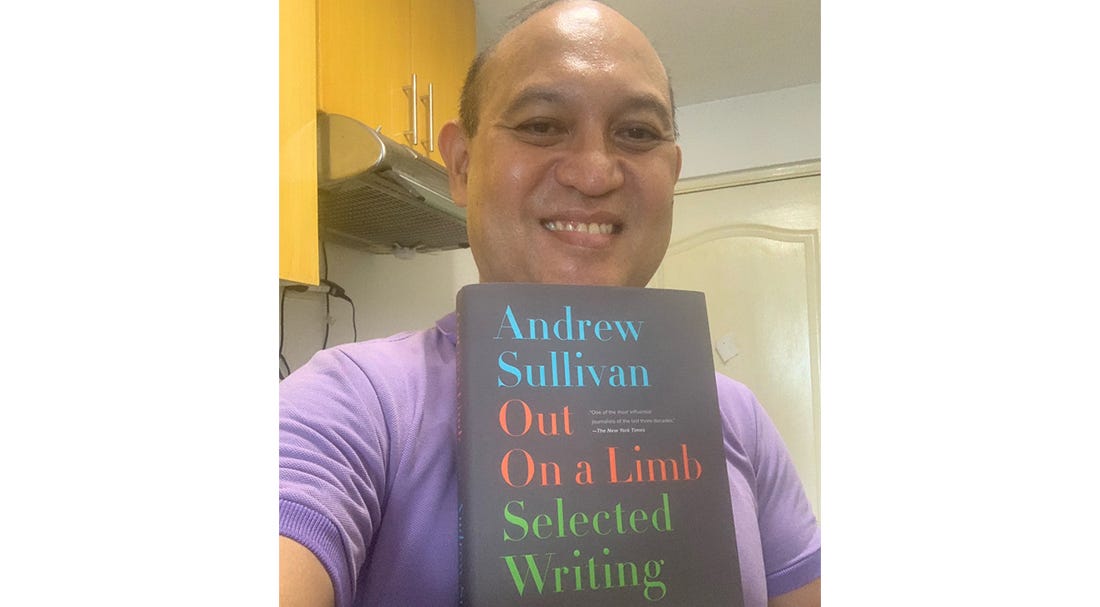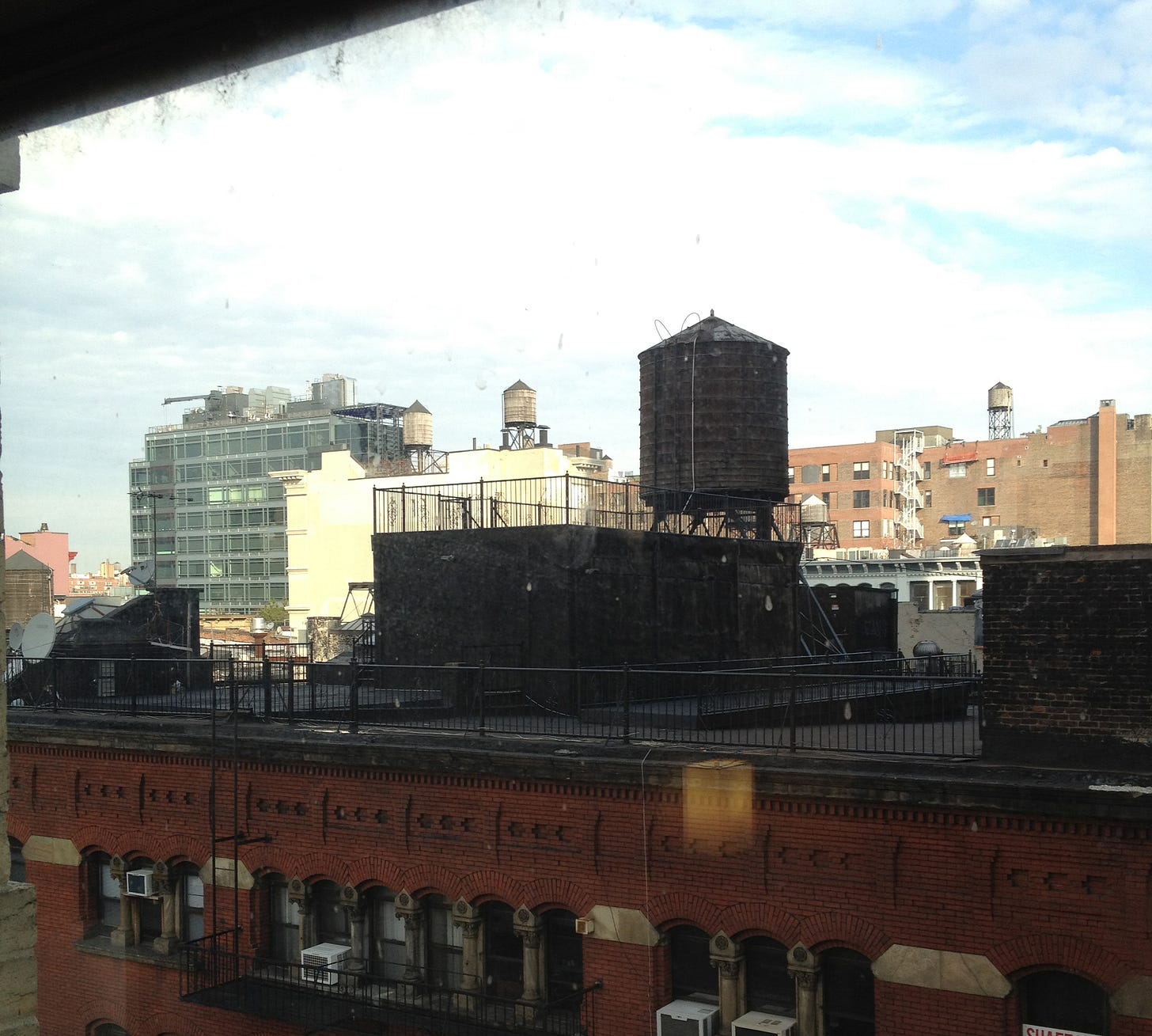Two Men Falling
The long war in Afghanistan is finally ending. Thank God.
The bookends of our two-decade entanglement in Afghanistan are two men falling from the sky. The first, on September 11, 2001, happened in Manhattan, as a figure facing imminent immolation in a skyscraper chose to jump instead. The second we witnessed this week, as another young human body, losing what grip he had on an airplane taking off from Kabul airport, tumbled through the sky for the last moments of his life. Their deaths were both a function of one thing: resurgent theocratic barbarism. And today, they can be seen as punctuating its resilience.
Between these two horrors, we have the story of the West’s attempt to save Afghanistan from itself, to direct and control this non-country from outside. We failed. Everyone who has ever tried this Sisyphean task has failed. We lost the war long ago, and had conceded defeat already. Despite extraordinary sacrifices by Americans and Afghans and Brits and others, a viable, stable, less-awful alternative to Taliban rule existed only so long as it was kept on life support by the West — and not a day longer.
Our swift victory in the winter of 2001/2 soon became a circle of pointlessness, with al Qaeda underground, Bin Laden in Pakistan, and a Western-designed “government” wallowing in a fathomless pit of corruption. We should have left then, instead of flattering George W Bush’s utopian “nation-building”. Obama should have done the deed in his first term, but he figured he couldn’t end two wars at once, and tried to turn the Afghan project into a moral calling, as he drone-killed thousands. He caved — against Biden’s advice — to the blandishments of the top brass and the piety of the Blob. Trump should have done it — as he promised — but Trump couldn’t even build a wall. And real battle and conflict — along with real accountability that executing withdrawal would have demanded? Trump ran away from all of that for four years.
We can flagellate ourselves over this — and the futility of it all seems heartbreakingly obvious in retrospect — but it was not ignoble. Two difficult things can be true at the same time. Lives were saved, minds were opened a little, women breathed freer air for a while, bodies were less frequently bludgeoned by torture and barbarism, and souls were less stricken with constant dread. We know this because of so many glimpses of hopeful humanity these past two decades, from schoolgirls to voters, and because of what we just witnessed: a flood of people fleeing in panic and terror from the regime that comes next. Even a futile project can do some good — for a while.
But we also know that countless Afghans, exhausted by the incompetence and kleptocracy of their own government, unmoved by Western liberalism, had, over the last year, swiftly made deals with the winning party as it swept through all the provincial capitals. And we know the putative Afghan president ran like Sir Robin the moment he feared he might face the music and lose his life as well as his access to his well-padded international bank account. The final days proved the Potemkin emptiness of the entire project.
Of course, we should have gotten our people out before the Taliban’s imminent victory — all the Americans and every single Afghan who helped us. That we didn’t is horrifying. To contemplate this betrayal is to shudder. Think of the family of an interpreter now hiding from the Taliban; think of the girls who dreamed of careers; think of the gay men about to be murdered; think of the boys we are now effectively consigning to sexual abuse (as we had already, anyway). Some Americans glibly talk of “oppression” in this country as if they have any idea of what that word actually means. They should turn on the television and learn something.
We will soon have a better idea of exactly how this disastrous exit happened, how faulty the intelligence was, how deaf the White House might have been to the warnings, why the visas for our friends took so long to process, and so on. I’ve learned not to jump the gun on these stories, when we don’t yet know all the details. But if Biden delayed evacuation and refugee plans because he was spooked by Republican anti-immigrant rhetoric, he’s an idiot. If he delayed exit to coincide with 9/11’s anniversary, he’s way out over his skis. And if the military’s decades-long disinformation, bullshit and feel-good blather blinded us to reality in Afghanistan, they deserve a long-overdue shellacking too.
But there is something about the unreal huffing and puffing this week from the left-media, the neocon holdouts and the opportunistic Republicans that seems far too cheap and easy. It’s as if they have learned nothing — nothing — from the 21st Century. They are acting now as if we are snatching defeat from the jaws of victory, rather than finally ending the dumbest, longest war this country has ever fought.
They say they’re just decrying the way we left; but of course, this is the motte, not the bailey. Read any of their screeds, and you’ll see they still want us to stay. They still think they are right and that the American people are wrong, still believe they have the moral high ground, even as their morality has led to strategic blunders, and hundreds of thousands of innocent deaths. Bill Kristol — I kid you not — actually wrote another article condemning the withdrawal, quoting Churchill and Munich! How dead can a brain be?
Between these think-tank critics who helped create this nightmare in the first place, and Biden who fucked it up but actually did it, I’m with the president. Biden is right that ending this conflict was always going to be a bloody, depressing mess. Maybe it’s more of a mess than it might have been in a perfect world — but it was always going to be a difference of degree, not kind. It’s one of those cliches that’s true: power really does abhor a vacuum, and, since the Trump agreement was reached, the vacuum in Afghanistan was fast intensifying. When a regime knows its time is going to be up soon, and its leaders are not as determined to keep power as insurgents are to seize it, things can collapse very, very quickly. If our military leaders did not get this, they are as useless now as they have been for the past 20 years.
The distinction between the US-puppet regime and the Taliban is a simple one: while the Kabul authorities were sustained by money and weakly-held Western concepts, the Taliban were gripped with medieval zeal and their own religion. And zeal can beat the most formidable military machine ever built. The other difference is that the Taliban were actually more efficient and less corrupt than the US-backed government. Here’s a slice of reality from The Economist over a year ago:
Sitting on a dusty rug beside their lorries at the edge of Kandahar, Afghanistan’s second city, a group of middle-aged drivers explain the difference between the Taliban and the government. Both groups take money from drivers on the road, says Muhammad Akram, leaning forward in a black kurta; both are violent. But when the Taliban stop him at a checkpoint, they write him a receipt. Waving a fistful of green papers, he explains how they ensure he won’t be charged twice: after he pays one group of Talibs, his receipt gets him through subsequent stops. Government soldiers, in contrast, rob him over and over. When he drives from Herat, a city near the Iranian border, to Kandahar, Mr Akram says, he will pay the Taliban once. Government soldiers he will pay at least 30 times.
And we wonder why it all fell apart so quickly.
The mullahs also had plenty of time and all the leverage to prepare for the moment of truth. We had other things on our plate — like a pandemic and an attempt to violently disrupt the transfer of power at home. We were, it seems, lecturing the Afghans on democracy as our own was teetering on the brink of disintegration — perhaps the very definition of an over-stretched empire. We were pouring trillions of dollars (all borrowed) into rebuilding a distant wilderness as our own streets and bridges were crumbling — another definition of imperial decline.
And the truth is: we were never going to be as committed to the fate of Afghanistan as the Afghans are. America is not a colonial power in its DNA, and it shows. And if we are to project power abroad, it might behoove us to shore up our strength at home first. Over-extended, hollowed-out, debt-burdened empires are not exactly intimidating to many enemies. Leaving Afghanistan is therefore not the blow to American power and prestige these pundits are claiming. Staying in Afghanistan is.
And violent regime collapse is always chaotic. When the US began to withdraw from Iraq, Isis swept in with stunning speed, as the will to resist crumbled. Whenever colonial or neo-colonial powers end an occupation, it is never pretty. Look at Africa or Palestine or India after the British withdrew. Bloody tribal catastrophe — with millions dead. In comparison, Afghanistan’s return to self-rule is rather tame so far. There was never going to be a smooth or orderly transition; or any result that didn’t bring the religious fanatics back to power. Never. If the last few days do not persuade the pious think-tankers and Blob stenographers of that, they are a lost cause. The least they can do as we witness the end of their delusional disaster of two decades is to shut up.
This isn’t easy. But geopolitics never is. It requires terrible moral choices. It demands serious acceptance of the costs of failure — not this jumped-up media hysteria. It requires taking responsibility ourselves, and not hounding the one man who actually took it, with all its political costs.
I mean: how many of us were closely following developments in Afghanistan this spring? How many read any stories about the place? How many segments did CNN devote to Afghanistan in June and July? And how many of us who cheered the original invasion have been able to acknowledge candidly how deeply wrong we were since, and retain a modicum of humility and shame as we watch the inevitable end of our own hubristic dreams?
Not many. But then we are not a very grown-up country these days. Mercifully, we have a president who is. Who did the right thing, when others refused to. And who is mercifully not backing down.
(Note to readers: This is an excerpt of The Weekly Dish. If you’re already a subscriber, click here to read the full version. This week’s issue also includes: a long discursive convo with my friend Michael Moynihan on Afghanistan and other topics; two reader dissents over my views on Hungary and my long response; a haunting window view from Kabul and a scenic one from the Pacific Northwest; visually stunning tours of Saxony and Denmark; 11 recommended pieces on other substacks; five notable quotes for the week, mostly on Afghanistan; a heartbreaking Face Of The Week; and, of course, the results of the View From Your Window contest — with a new challenge. Subscribe for the full Dish experience!)
A re-subscriber writes:
I’ve paid for almost all your subscription services in the past, dating back to the original incarnation of The Dish and my original subscription in 2004 (?) However, I’ve been disappointed by many of your recent writings. You seem to focus almost entirely on cancel culture and Critical Race Theory to the exclusion of almost everything else. As a long-time reader, I’m used to your giving certain topics extreme attention, whether it be the Clintons or Sarah Palin. But your preoccupation with CRT strikes me as bit off-key, given the events of Jan 6th and the GOP’s continued descent into Trumpism and authoritarianism.
Then I listened to your interview with Michael Lewis. Lewis is a particular favorite of mine. I agree with you that he is the best living non-fiction writer in America. He’s a wonderful storyteller and has a way of writing about topics that reveal much of what it’s like to be an American at this particular moment in our history. Your conversation with him confirmed my admiration for him, and reminded me of why I originally became a follower of you.
So I am back in the fold. I understand your frustration with CRT and actually share some, not all, of your concern with it. But please try not to be distracted by singular issues, especially when self government and democracy hang in the balance. Your insight and outrage are needed on a whole host of issues.
I’m grateful for your patience. I can’t please everyone all the time, but I hope over time, the engagement is worthwhile. As we take our annual vacation, it’s wonderful to know that we send this newsletter out now to 99,318 people, including 18,300 paid subscribers. If you’re getting our free version, please subscribe. The full Dish each week is a real treasure.
New On The Dishcast: Michael Moynihan
Moynihan is one-third of the The Fifth Column — the sharp, hilarious podcast he does with Kmele Foster and Matt Welch — and he’s a long-time correspondent for Vice. In this episode we mostly cover the cascading news out of Afghanistan, but also bounce around to topics like old media, woke media, neocons and Israel, Big Tech, and third rails. We also reminisce a little about our mutual friend, the late Christopher Hitchens — like that one time Hitch called me a lesbian on air.
For three clips of my conversation with Moynihan — on our shared bewilderment over anti-vaxxers, on the need for intellectual humility and occasionally eating crow, and on gay men having a very different culture of consent and flirting — head over to our YouTube page. Listen to the whole episode here.
That link also takes you to a long page of discussion from readers on two topics Moynihan and I talk about — anti-vaxxers and wokeness. They spring from previous episodes with Michael Lewis and Wesley Yang. There’s one big dissent on the wokeness front, and many readers try to persuade a vaccine holdout to get the shot already. The pod-page always has continuing conversation on all kinds of topics, not just dissents. Send your comments and stories to dish@andrewsullivan.com.
ICYMI
I have been doing a lot of media to promote “Out On A Limb”, but this pod appearance got a particularly strong reaction from a reader:
I LOVED your interview with Michael Cohen, Trump’s old fixer, especially when you shared that you were surprised by how much you appreciated and enjoyed the experience. I only wished you had dug in a bit deeper when he said that yes, he was hypnotized into the cult of Trump. I would’ve loved to have heard him say WHY. Was it a heightened sense of masculinity? Was it a heightened sense of being smarter than the rest of us who are just “losers”???
I’ll be on Real Time with Bill Maher tonight, to discuss my new collection and whatever Bill wants to ask me. Many readers are enjoying the book so far, including:
Hi Andrew! I just received a copy of your new book here in Manila! Probably the first copy ever in the Philippines. Thanks for dedicating the book to us Dishheads! I’m so thrilled to have in my hands this beautiful book of my amazing friend, Andrew. Thanks, and may God bless you always!
Dissents Of The Week: What’s The Matter With Hungary?
My take on Tucker Carlson last week didn’t get many dissents in the in-tray. This reader sums up the vast majority of the sentiment: “Good work fisking Tucker!” In fact, many more readers defended Orbán than the Fox News host. Here’s an Orbàn defense from a reader who’s been to Hungary many times:
I am surprised and saddened that you would sacrifice your hard-earned reputation for erudition and intelligent writing with such a lowbrow, drive-by shooting of Hungary, Viktor Orbán and the Fidesz party. Have you ever been to Hungary? Have you ever studied the history of Hungary as a nation? Are you even aware of what has transpired there since the defeat of communism?
Read the rest of that dissent, and my long response to it and another dissent, here.
There is another side to the Hungary debate, and there are people I respect and care about who take a different view. We’ll invite someone on the podcast — I’ve been waiting for a moment to talk with my friend, Rod Dreher — and this topic would be a great one to hash out with him. Stay tuned.
As always, please keep the dissents coming, along with anything else you want to add to the Dish mix, such as the view from your own window (don’t forget the window frame), a ‘Stacks suggestion, or an Yglesias Award: dish@andrewsullivan.com. This reader has a correction:
You point to the “fact” that the percentage of the Australian population vaccinated stands at 4 percent. This is simply bullshit. It is 26 percent. Still too low, but not 4 percent! Facts are important in the coverage of the pandemic.
Not sure how I fucked that up — but apologies. Here’s a vaccine tracker for Australia to get the latest numbers.
The View From Your Window Contest
Where do you think it’s located? (Bonus points for the right year and month and maybe even day.) Email your guess to contest@andrewsullivan.com. Please put the location — city and/or state first, then country — in the subject line. Bonus points for personal stories. The winner gets the choice of a VFYW book or two annual Dish subscriptions. If you are not a subscriber, please indicate that status in your entry and we will give you a three-month sub if we select your entry for the contest results (example here if you’re new to the contest). And please try to be concise with your entries, so we can include as many good ones as we can. Happy sleuthing!
The results for the last week’s window are coming in a separate email to subscribers later today. From a VFYW fan:
This contest is insidious. I am not a joiner. And online communities? Forget it. But VFYW … I have been entering every week and I read all the published submissions. I am HOOKED, damn it!
How do they do it? I mean really, Chini and the VFYW Stars find the window every week! I understand when it is a place where someone has been, but when there are few clues that would limit the search?!
I am still trying to figure out if there is a system, or do people just spend hours looking at Google Satellite and Street View? When faced with a new type of problem, I begin with a period of unfocused wandering around, trying this and that before attempting to formulate a system. But this contest? I cannot find an end to the thread. It seems that a random search is the only way.
I also question my goal in this. At first it was to get at least close to the target. The best chance I had was the easy ones that were close to home: Duluth and Quebec City, and I did not have the ambition to work hard enough at those two. I am clearly totally out-classed. Then my goal came to be writing something interesting enough to have you publish parts of my email. So far, so good.
See you three Fridays from now, after a two-week Dishcation.






